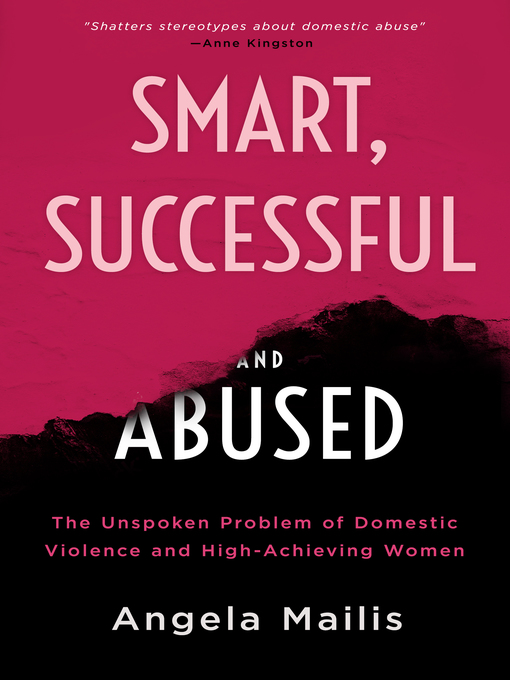Understanding the complex psychology behind the problem of
powerful, brilliant women who endure domestic abuse
"If you are educated, intelligent and strong in other areas of your life, it's hard to imagine that you are a victim, but it happens. Dr. Mailis brings the intimacy and empathy of her own experiences together with her professional insights to empower women and jump-start a much-needed dialogue." - JANE FRANCISCO, editor-in-chief, Good Housekeeping
In 2016, neuroscientist Angela Mailis, a world-renowned expert on chronic pain management, was brought face to face with domestic violence when an accomplished colleague was murdered by her equally accomplished husband. It was familiar territory for Dr. Mailis, who herself had been involved in an emotionally abusive relationship for twenty-seven years. She immediately redirected her research towards what is perhaps the most puzzling form of domestic violence: the abuse endured by high-achieving women who to all appearances have everything required to stand up for themselves.
These victims spend their days as the powerhouses of boardrooms, universities, clinics, and law courts. They have educations, talent, resourcefulness, and financial competence. Yet they allow themselves to be mentally dominated and emotionally and/or physically beaten by the men in their lives. How does it happen? What can be done about it?
Smart, Successful & Abused is the result of Dr. Mailis' search for answers to these questions, a search that has taken her to the frontiers of medical research, into the homes and offices of successful career women caught in violent relationships, and deep into her own experience as an abused spouse. Her conclusions and advice will help entrapped women recognize and deflate the delusions that prevent them from acting in their best interests.

